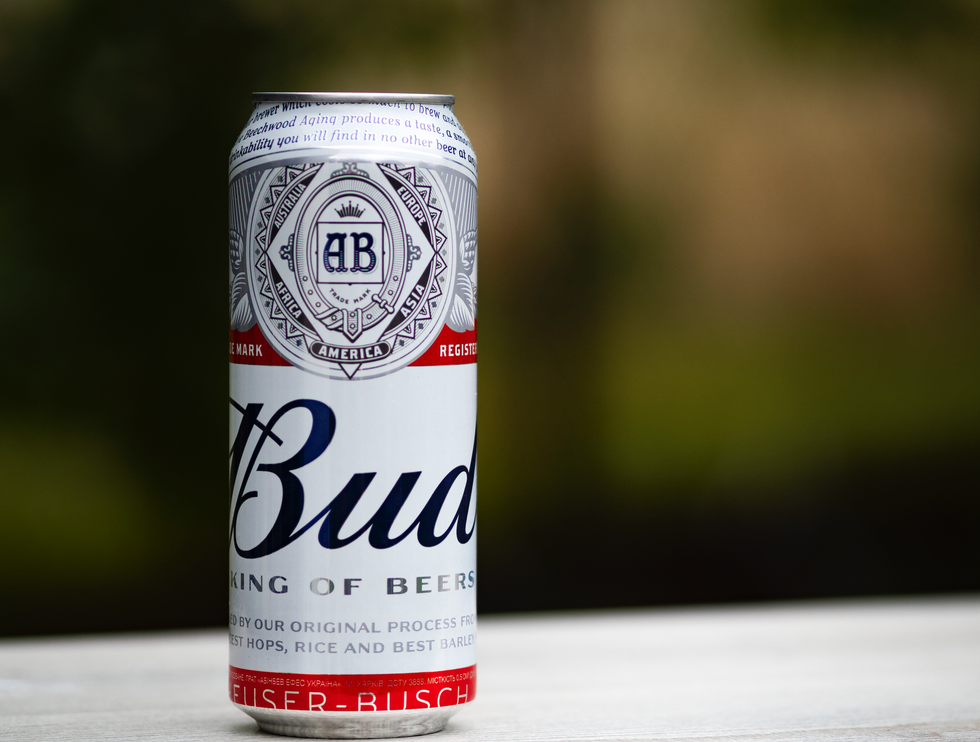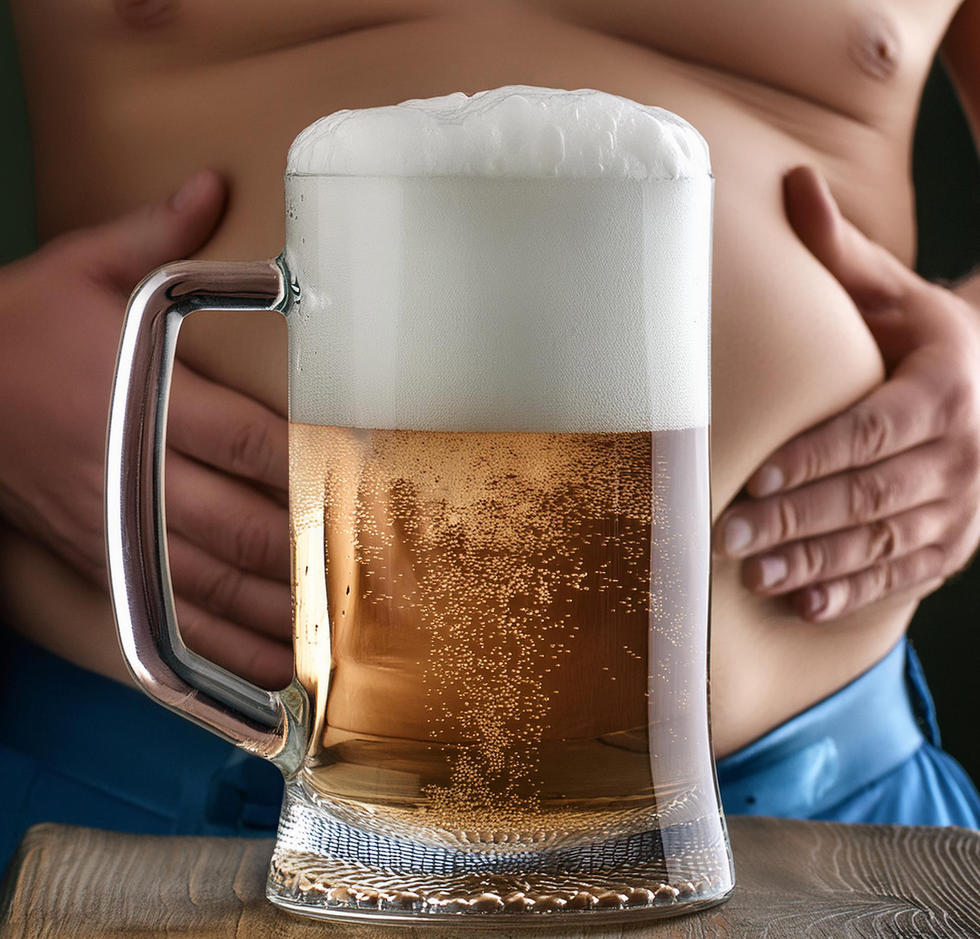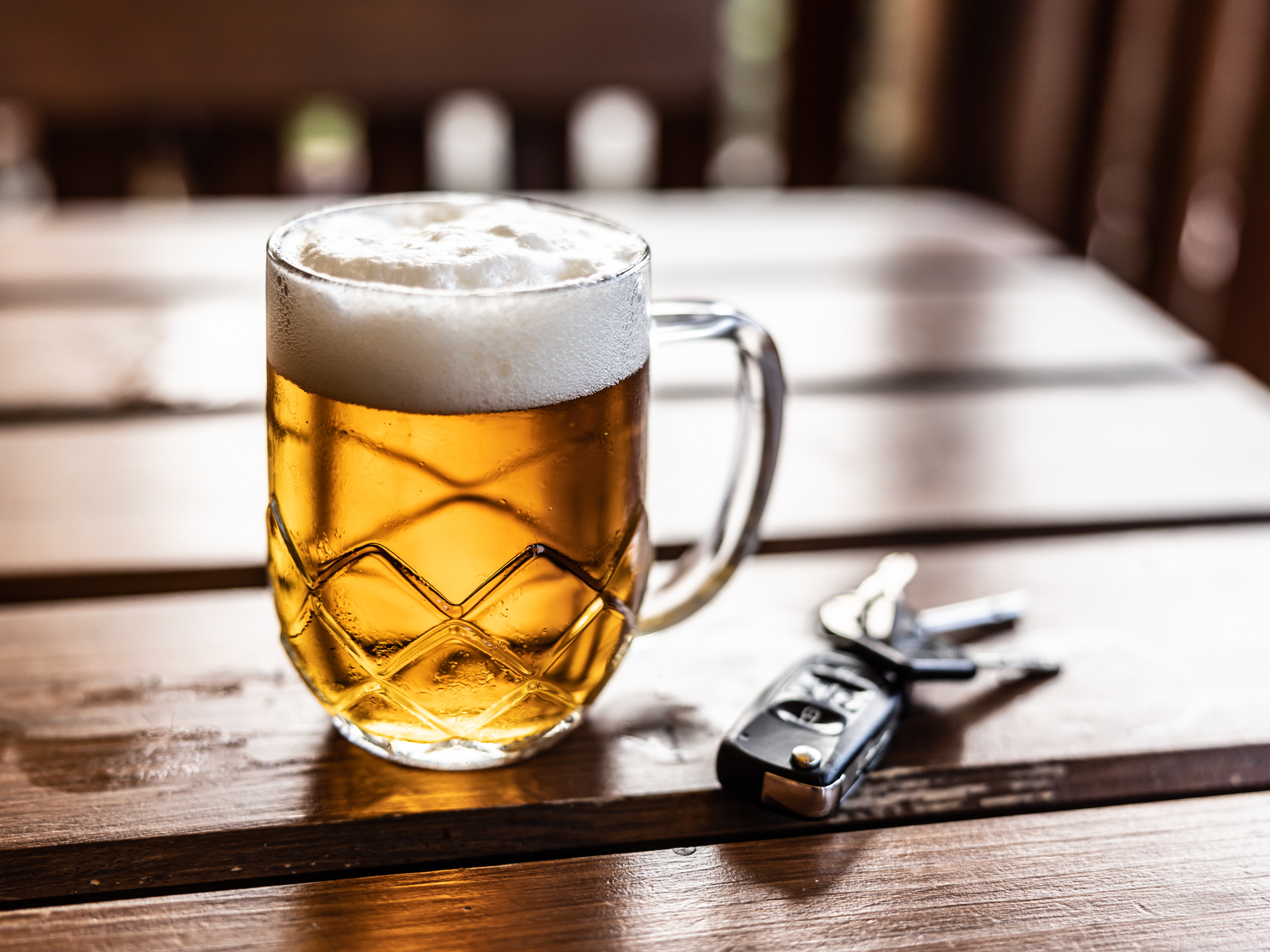What really happens to your body when you drink beer - and the best to worst pints ranked

The two most important things to consider when drinking beer is the alcohol and calorie content
|Adobe Firefly

Britain is a nation of beer drinkers but is it high time we kicked this habit? Our digital health editor investigates what drinking beer does to the body and how different pints compare
Don't Miss
Most Read
Britain has a long-standing love affair with beer. It has been brewed here in one form or another for more than 2,000 years.
However, this love affair is waning. According to figures compiled by Oxford University’s Our World in Data last year, the average Brit now drinks about 37 bottles of wine a year, but only about 124 pints of beer, which is half the number of 50 years ago.
Beer consumption also dropped precipitously during the pandemic and is yet to fully bounce back, data from Statista shows.
The cause of this decline is multi-faceted but the enduring stereotype of the booze-fuelled Brit isn't helping.
German authorities announced on Tuesday that England fans will only be allowed to buy low-alcohol beer at their opening Euro 2024 match with Serbia on Sunday after the fixture was identified as “high risk”.
The British pint may be suffering a PR crisis but is it all that bad for you?
Our digital health editor put the question to nutritionists and researchers.
It goes without that saying swerving alcohol altogether would be the best option.
But if you're going to have a tipple - do it responsibly. Guidance from the UK chief medical officer states that men and women should drink no more than 14 units of alcohol each week - the equivalent of six pints of average strength beer.
Disclaimers aside, there are two important things to consider before choosing your pint: the alcohol and calorie content.
"A lower alcoholic beer is going to be a more healthful choice because alcohol is a toxin - it needs to be processed by the body," explained May Simpkin, a nutritionist aligned with the British Association for Nutrition and Lifestyle Medicine (BANT).
As she points out, the less alcohol you can give the body, the less it has to overwork to remove those toxins.
The other part of the equation is the high number of calories found in some beers.
It is important to consider these calories within the context of your daily caloric intake as they can contribute to weight gain if consumed in excess, notes nutritionist Rimas Geiga.
These are often considered "empty calories" since they offer minimal essential nutrients, he tells GB News.
Beer lovers should also "be aware" that alcohol contains carbohydrates in the form of sugars, adds Simpkin.
"I think people forget that - it's actually quite high sugar. So the more sugar content as well in a beer, the higher the calorific value, and the higher the carbohydrate effect," she told GB News.
In other words, carb-heavy calorific beers can upset your blood sugar balance, spelling trouble for people who have diabetes or metabolic concerns.

Beers contain "empty calories" as they minimal essential nutrients, a nutritionist tells GB News
|Getty Images
The devil is in the detail
Beers made using barley in particular have more calories than those made with other grains like oats, because of the comparably higher calorie content of barley.
Confusingly 'lighter' malts contribute to a higher calorie content of the beer being made than darker malts because they have more fermentable sugars that are converted to alcohol during the fermentation process.
Darker beers, which get their colour from roasting malt, also tend to have more antioxidants and B vitamins, thanks to the greater quantity of malt used in brewing.
Antioxidants fight free radicals in your body, reducing the risk of chronic conditions, such as heart disease and certain forms of cancer.
How do different beers compare nutritionally?
The nutritional content of beers varies significantly, with both caloric and carbohydrate content playing critical roles in their impact on an individual’s health. See below:
- Budweiser (4.5% ABV) - 219 calories in a pint - 14.8 grams of carbs
- Stella Artois (4.8% ABV) - 219 calories in a pint - 14.8 grams of carbs
- Estrella Damn (4.6% ABV) - 224 calories in a pint - 18.8 grams of carbs
- Asahi (5.0% ABV) - 225 calories in a pint - 16.5 grams of carbs
- Sol (4.5% ABV) - 227 calories in a pint - 20.0 grams of carbs
- Peroni (5.1% ABV) - 234 calories in a pint - 15.3 grams of carbs
- Heineken (5.0% ABV) - 236 calories in a pint - 17.6 grams of carbs
- San Miguel (5.0% ABV) - 236 calories in a pint - 20.5 grams of carbs
- Desperados (5.9% ABV) - 317 calories in a pint - 31.8 grams of carbs
Budweiser and Stella Artois each contain 219 calories and 14.8 grams of carbohydrates per pint, making both pints relatively moderate. This balance is important for those looking to enjoy beer without excessive calorie or carbohydrate intake.
By contrast, Desperados, containing the highest values among the listed beers, contains 317 calories and 31.8 grams of carbohydrates per pint, making it significantly more energy-dense and carbohydrate-rich.
Stouts, Porters and Guinness also tend to be on the higher end of the carbohydrate spectrum amongst beers and can have upwards of 20g of carbohydrate per pint.
Some ‘light’ beers, such as Bud Light, may be better and have less than 10g of carbs per pint and some with less 5g of carbs.
These light beers often contain 90-100 calories (Bud Light contains 110), whereas craft beers with higher alcohol content may exceed 300 calories.
LATEST DEVELOPMENTS

Budweiser contain 219 calories and 14.8 grams of carbohydrates per pint, making it relatively moderate
|Getty Images
How beer impacts the body
The heart
Moderate beer consumption has been linked with some protective effects against heart disease due to the presence of alcohol, which can improve heart health by increasing 'good' HDL cholesterol and improving arterial function.
Several reviews have suggested that consuming one to two beers a day may help lower your risk of heart disease.
In fact, beer may be as effective at improving general heart health as wine at comparable alcohol levels.
A review of six studies published in the journal Nutrients found five of them showed a protective effect of moderate alcohol drinking on cardiovascular disease (beer up to 385 g/week) versus abstainers or occasional drinkers.
Four out of five papers showed an association between moderate alcohol consumption (beer intake of 84 g alcohol/week) and decreased mortality risk.
The researchers concluded that moderate beer consumption of up to 16 g alcohol/day (one drink/day) for women and 28 g/day (one to two drinks/day) for men is associated with decreased incidence of cardiovascular disease and overall mortality, among other metabolic health benefits.
Beer contains compounds called antioxidants, particularly called polyphenols which come from the barley and hops. These "inhibit oxidation" in the body, explains Amie Leckie, Health and Wellbeing Specialist at Heart Research UK.
"Oxidation is a chemical reaction that produces free radicals, which cause inflammation in the body. Generally, the darker the beer the more antioxidants it contains, beers like stout and porters contain the highest antioxidants," she told GB News.
Regular consumption of antioxidants is beneficial to health, in particular supporting heart health and preventing coronary heart disease, due to their inflammatory properties and effect on lowering ‘bad’ cholesterol, Leckie explains.
However, the antioxidant benefits of beer are "modest, and you would reap more heart health benefits by regularly consuming antioxidant-rich foods such as blueberries, raspberries, black beans and beetroots”, she adds.
It must also be acknowledged that drinking to excess cancels out these benefits. A study published in the British Medical Journal (BMJ) suggested that drinking in moderation could offer a protective effect for the heart compared with not drinking.
But the research also found that drinking more than 14 units a week increased the risk of heart failure, a cardiac arrest and ischaemic stroke.
Consuming alcohol in excess can increase your risk of developing heart disease by increasing your blood pressure and contributing to weight gain due to the high-calorie content of alcohol, warns Leckie.
The gut
A link has been established between a robust and diverse collection of microorganisms in the gut and a decreased risk of developing a wide range of chronic and metabolic diseases.
A study, published in the Journal of Agricultural and Food Chemistry, found that drinking beer can help someone’s gut microbiome become more diverse.
The researchers learned this by analysing the gut microbiomes of 19 men, who were asked to drink one 11-ounce beer each day for four weeks.
Researchers found that both types of beer increased the diversity of the microbial populations in the participants’ guts. There was also an increase in the activity of an enzyme, known as alkaline phosphatase, that helps defend the gut from bad bacteria. Activity by this enzyme also indicates that the intestinal barrier, which allows for optimal immune function and nutrient intake, is working well.
This research suggests that drinking beer can boost microbial diversity, which is an important factor in gut health.
The researchers reviewed the interactions and mechanisms between beer and the gut microbiome in regulating body immunity.
The research suggests that the bacteria present in beer helps to improve your intestines and immune system.
“Beer is rich in many essential amino acids, vitamins, trace elements, and bioactive substances that are involved in the regulation of many human physiological functions,” the authors noted.
“When beer is consumed in moderation, the phenols and other nutrients it contains are fermented and broken down by the microbial community that resides in the outer mucosal layer of the gut. In healthy non-smokers, beer acutely improves parameters of arterial function and structure.”
A review published last year supported these findings, claiming key ingredients in beer — polyphenols, fibre and ethanol — help control and supercharge the immune system.
However, the authors acknowledge that this effect probably owes more to the compounds found in the alcohol - not the alcohol itself.
Some traditional Belgian Beers still contain "active cultures" of probiotic yeast, meaning they have the potential to favourably impact our gut microbiome (the bacterial makeup in our digestive tract) and improve digestion, notes Leckie of Heart UK.
However, most beers we come across today do not contain probiotics, she points out.
Some of the ingredients in beer, particularly the grain used during fermentation, may actually wreak havoc on the gut, especially if you have dietary intolerances and allergies, warns Carolina Goncalves, a Health Expert and Superintendent Pharmacist at Pharmica.
Beers brewed with barley (which contains gluten) can cause digestive discomfort in the form of bloating, gas, and abdominal pain in those who are allergic or intolerant to gluten, she explains.
This is one of the reasons why gluten-free beer has seen an increase in production in recent years.
Most beers also contain histamines (a natural byproduct of fermentation) which can trigger headaches in sensitive individuals, the pharmacist notes.
The same effects may be felt by an individual who is intolerant to sulphites, which are sometimes added as a preservative in beers, Goncalves adds.
The best way to ensure we eat enough fibre is to eat a wholefood diet rich in fruits, vegetables, legumes and wholegrains, including fermented foods such as live natural yoghurt and sauerkraut is a preferable way to consume beneficial probiotics, Leckie says.

Studies suggest moderate beer drinking may boost gut health
|Adobe Firefly
The brain
Alcohol consumption (including the consumption of beer) affects the entire brain as it reaches all areas.
As alcohol enters the bloodstream and passes the blood-brain barrier, it "disrupts the balance of neurotransmitters (such as glutamate and GABA)", explains Goncalves, the pharmacist.
This produces mixed results. GABA is a chemical in the brain that normally has a relaxing effect.
Small amounts of alcohol can stimulate GABA and cause feelings of relaxation, hence why people feel "loose" after a couple of pints.
However, as Drinkaware points out, heavy drinking can deplete GABA, causing increased tension and feelings of panic.
Limited studies suggest beer made with hops (flowers from the hop plant that give it a bitter, floral, citrus or fruity flavour) may offer some protection against Alzheimer's.
Researchers investigated the effects of hop extracts on human cell lines and a worm model of Alzheimer’s.
They found that certain hop extracts may inhibit the build-up of amyloid beta proteins in the brain — a key marker of Alzheimer’s disease.
Some recent studies have found that long-term intake of hop flower extracts mitigates Alzheimer’s symptoms in a mouse model of the disease.
Other research suggests that the intake of bitter hop acids improves cognitive function, attention, and mood in older adults.
However, the efficacy in humans remains limited unknown and more research is needed to confirm these results.
Also, drinking too much alcohol can have a devastating impact on the brain.
One study found that drinking more than 14 units per week (five to seven drinks) was associated with an increased risk for dementia.
Brain imaging indicates that those who drink more than 14 units per week are also more likely to show brain volume loss.
In another study, the negative impact to brain volume was detected at consumption levels greater than 7 units per week, suggesting even moderate consumption poses a risk.
Brain loss, also known as brain atrophy, occurs in almost all types of dementia.
Overdoing it can be particularly damaging to the young: the brain’s cognitive function is still developing until the age of 25, meaning teenagers and young adults are predominately cognitively impacted by alcohol.
Research supports this claim. Alcohol consumption among adolescents has potential adverse effects on memory, learning, visuospatial function, executive function, reading ability and impulsivity.
Another study carried out on adults aged 21-80 does show that controlled consumption of alcohol (100g per week, around one to two units) can improve working memory performance throughout the adult lifespan to a greater extent than complete sobriety.
Yay or nay?
Whilst boasting some health benefits due to the brewing process and ingredients of beer, you should be mindful of consuming in excess.
And don't forget - men and women are advised not to drink more than 14 units of alcohol in a week, which is roughly equivalent to six pints of beer, but this varies depending on the strength.
“People who enjoy the taste of beer and wish to reap its health benefits, without the health drawbacks of alcohol, could consider drinking alcohol-free versions," Heart UK's Leckie concluded.
Your correspondent will toast to that.










